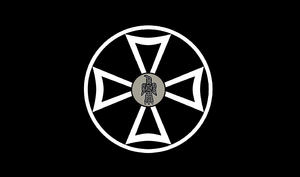Acrean Empire: Difference between revisions
Jump to navigation
Jump to search
No edit summary |
No edit summary |
||
| Line 45: | Line 45: | ||
}} | }} | ||
The '''Acrean Empire''', also called the '''Empire of Acre''', was a kingdom in [[Eracura]] which grew to become an empire and the dominant state on the continent for nearly a millennium | The '''Acrean Empire''', also called the '''Empire of Acre''', was a kingdom in [[Eracura]] which grew to become an empire and the dominant state on the continent for nearly a millennium. The Empire served as the home of the [[Nordic peoples]], today one of the largest ethnic groups in the [[Tyran]]. The Acrean Empire achieved continental hegemony by the mid-3rd century CE, spanning from coast to coast. | ||
==Etymology== | ==Etymology== | ||
Revision as of 21:39, 25 June 2022
Acrean Empire Norðreyjar | |
|---|---|
| 482 BCE–990 CEa1016 CEb | |
| Capital | Acrea |
| Common languages | Old Nordic Gothic Latin |
| Religion | Valstígr |
| Demonym(s) | Acrean |
| Government | Absolute Monarchy |
| King | |
| Historical era | Antiquity to Medieval |
• Established | 482 BCE |
• Dissolved | 990 CEa1016 CEb |
| Currency | Mark |
| Today part of | Avallon |
| |
The Acrean Empire, also called the Empire of Acre, was a kingdom in Eracura which grew to become an empire and the dominant state on the continent for nearly a millennium. The Empire served as the home of the Nordic peoples, today one of the largest ethnic groups in the Tyran. The Acrean Empire achieved continental hegemony by the mid-3rd century CE, spanning from coast to coast.
